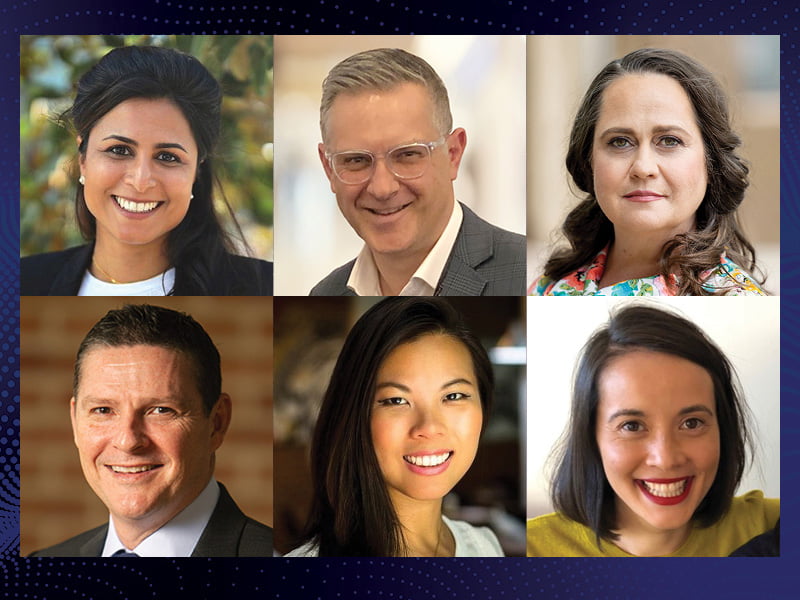The Asia Pacific region accounts for more than 60 per cent of global emissions while housing 70 per cent of the worldwide supply chains. This gives it a unique vantage point to influence environmental, social and corporate governance (ESG) policy, and business sustainability transformation.
Society’s increased expectations around companies’ ESG performance and the rapid acceleration in reporting and citizen journalism around ESG are among the critical pressure points impacting sustainability ecosystems.
These pressures compel organisations to meet compliance objectives and deliver genuine outcomes that impact sustainability in regional supply chains. Unsurprisingly, technology, including artificial intelligence (AI), is crucial in reaching these goals.
The InnovationAus.com APAC Leader’s Panel ESG is a team sport – powered by Verizon – grappled with current and future challenges around ESG initiatives in the region.
Senior technology business leaders in Sydney and Singapore shared cross-industry experience around technology in responding to stakeholder expectations, including disclosure measurement methods.

“The problem we’re trying to solve in the marketplace as a whole is bringing ESG disclosures, also called non-financial disclosures, up to the same level as financial disclosures,” says Dr Priya Dev, a lecturer in the Research School of Finance, Actuarial Studies & Statistics at the Australian National University’s College of Business and Economics.
Solving this challenge with technology’s help will allow capital markets to assess companies’ progress in ESG adoption transparently.
The panel included two experts from leading-edge technology platforms utilising advanced AI, positively impacting sustainability reporting and action.
Grace Sai, the Co-founder of Unravel Carbon, outlined how her company uses enterprise software to track and reduce carbon emissions.
“We help companies convert their accounting data into the full supply chain and carbon disclosure data, which is both auditable and actionable,” Ms Sai said. The software helps companies to manage not only risk but also increase business performance.
In parallel, Naomi Vowels, co-founder, and chief executive at Givvable outlined how her sustainability intelligence platform automates millions of data relationships. The AI-powered software uncovers ESG leaders and laggards in a company’s global supply chain of suppliers, partners, and vendors.
“Our customers are setting various targets, including Net Zero, and ensuring there is no modern slavery in their supply chains. It’s vital in countries like Australia, where regulations target these human rights violations. Our software helps them meet their goals in all three areas of ESG,” Ms Vowels said.
Both software platforms steer organisations beyond ‘soft metrics’ while limiting ‘greenwashing’ – a term used to describe companies attempting to inflate their adherence to environmental standards.
Meanwhile, Verizon is rapidly architecting new technology and innovation around ESG objectives in the Asia Pacific Region.
“By migrating our broadband services from old copper networks to fiber optic alternatives, we get a 100 times improvement in power consumption. That strategy offers a significant step forward in our environmental and sustainability goals,” said Verizon regional vice-president Rob Le Busque.
However, technology alone is not enough to meet the United Nations’ 17 sustainability goals for 2030 encompassing climate action, reducing inequalities, and producing affordable and clean energy.
The leading companies in the ESG space are pioneering sustainable vision statements that inspire business leaders across an organisation, including CEOs, CFOs, CMOs, and members of data-driven teams.
“At Verizon, we’ve got a commitment to 2.5 million volunteer hours across the globe across our 135,000 staff,” said Verizon’s Global Solutions managing partner Andy Lamrock. “We need to be able to create platforms to draw out on the ability of humans to deliver meaningful purpose.”
The panel acknowledged an awakening and realisation that the responsibility for creating a sustainable, livable planet is not the sole mandate and accountability of governments and non-governmental organisations (NGOs) alone.
While Asia Pacific countries generally adapt quickly to risk scenarios, meeting ESG goals will require a unified team effort between companies, supply chains, and nations. The region needs to act in unison and make a meaningful impact on ESG objectives by 2030.
“The biggest challenge we face this decade is striking a balance between economic prosperity and the needs of society as a whole,” said Mr Le Busque.
ESG as a strategy plays a pivotal role in executing this task.
The InnovationAus.com APAC Leaders’ Panel, ESG is a team sport, was produced as a podcast and video by InnovationAus.com in partnership with Verizon. The podcast is available to listen on demand here, and the video is available to watch on demand here.
Do you know more? Contact James Riley via Email.
